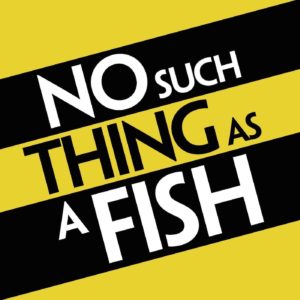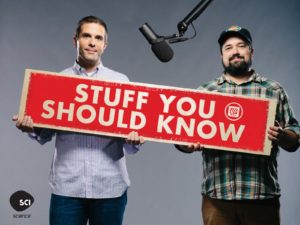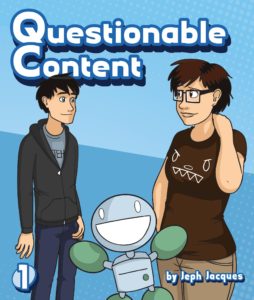Invisibilia
by National Public Radio
[Online Resource]

view/request
Bernie Krause was a successful musician as a young man, playing with rock stars like Jim Morrison and George Harrison in the 1960s and ’70s. But then one day, Bernie heard a sound unlike anything he’d ever encountered and it completely overtook his life. He quit the music business to pursue it and has spent the last 50 years following it all over the earth.
If this description of a recent episode intrigues you, you will want to check out a podcast called Invisibilia. Produced by National Public Radio, Invisibilia explores the underlying forces that influence our behavior, ideas, and assumptions. Topics are wide-ranging and are told in an engaging and narrative fashion. One recent episode discussed a city councilor candidate who insists he is black, while his opponent accuses him of pretending to be black. The podcast asks “If race is simply a social construct and not a biological reality, how do we determine someone’s race? And who gets to decide?”
Reviewed by Rachael
Tagged: Podcast
Ian’s Shoelace Site
by Ian Fieggen
[Online Resource]

view/request
Sometimes its nice to dive into a seemingly trivial subject and learn what there is to learn. Shoelaces for example. We tie and untie them everyday, but what do we know about them? For most folks, the answer is not much. What is there to know about them? A fair amount, it turns out, and Ian Fieggen has provide a website (Ian’s Shoelace Site) that answers the questions you didn’t think to ask. The deepest and richest sections are, without a doubt, the sections on shoelace tying and shoe lacing. You can learn sixty-two different ways to lace shoes and the comparative advantages and disadvantages of each. And you can learn twenty different ways to tie your laces. Fieggen’s instructions are clear and the amount of detailed information he includes for each method is impressive. This is definitely the site to go to if you have a question about shoe laces, but it also highly recommended for anyone who likes to learn about the little things around us.
Reviewed by Ben
Online Etymology Dictionary
by Douglas Harper
[Online Resource]

view/request
Dan Harper’s Online Etymology Dictionary is one of those reference sources that is both useful and a pleasure to use. It’s primary content is, of course, dictionary entries for English words with a focus on their history. For example we will learn that the word “pet” is of unknown origin and meant “a tamed animal” until about the 16th century when it gained the meanings “animal kept as a favorite” and “indulged child”. By the 1620s it was in use as a verb meaning “to treat as a pet”, but it didn’t gain its meaning of “to stroke” until 1818! The entries in Harper’s dictionary are concise and thoughtful. Sources are rarely given, which limits its use for scholarship, but the brevity achieved makes in perfect for quick reference and pleasure reading.
In addition to the dictionary entries, the website also includes articles on various related topics, most recently Language in a Time of Corona, which digresses on themes suggested by the history of the various words in common use, including: “crisis” (which curiously evolved from a word meaning “sieve”), “epidemic” (a noun with an adjective’s ending), “virus” (a word that predates it’s current meaning by many centuries), “quarantine” (which originally referred to policy of isolating a ship for forty days), and many others.
Reviewed by Ben
No Such Thing as a Fish
by James Harkin, Andrew Hunter Murray, Anna Ptaszynski and Dan Schreiber,
[Online Resource]

view/request
Way back in 2003 Stephen Fry began hosting the delightful comedy trivia quiz show QI. The most visible stars of that show were the host, Stephen Fry, and the many witty panelists who joined him each week. But the hidden stars of the show were the researches who provided Stephen with a seemingly endless supply of “quite interesting” things to talk about. Those researchers quickly became know as the QI Elves, and since 2014 four of them, James Harkin, Andrew Hunter Murray, Anna Ptaszynski and Dan Schreiber, have hosted a weekly podcast crammed full of quite interesting facts, speculations, and banter.
No Such Thing as a Fish is wonderfully entertaining. Each of the four hosts picks a favorite fact of the week, which might sound like a recipe for a rather short podcast, but each host also comes prepared with a list of their favorite facts on the topic of their cohost’s facts. That would make for a minimum of 12 facts, and most episodes have far more. A recent episode included information on ancient Roman toilets, paint colors in Pompeii, flag burning, the origin of the word the word “prat”, and what we do and do not know about human intestinal length. All the while we are treated to jokes and puns and humorous anecdotes.
Most episodes of Fish are between 40 minutes and an hour long, and the episodes can be enjoyed in any order. Some listeners may want to seek out the episodes with special guests such as Stephen Fry, Cariad Lloyd, and John Hodgman. (The latter is, I must say, perfectly suited for the show.)
Reviewed by Ben
Tagged: Comedy, Podcast, Trivia
Bach’s Chaconne on nyckelharpa
by performed by Torbjörn Näsbom
[Online Resource]

view/request
In these times of isolation and anxiety, here’s something gorgeous and sublime to help you reconnect with joy and remind everybody why the arts matter. Torbjörn Näsbom connects two of my favorite musical obsessions: the nyckelharpa and J.S. Bach. The nyckelharpa is a traditional Swedish instrument that has been played, in one form or another as it evolved, for more than 600 years. It’s used mostly for Swedish folk music, which I could do a dozen staff picks on, but many musicians are playing other repertoire on it. Listen and enjoy 13 minutes of 16-string deliciousness.
There’s more Bach and traditional Swedish nyckelharpa tunes on Torbjörn’s YouTube channel. It’s a delight from beginning to end (and I hope it never ends).
For information in English about the nyckelharpa and its musical traditions, visit The American Nyckelharpa Association.
Reviewed by Faith
Tagged: Music, Online Video
Stuff You Should Know
by Josh Clark and Charles W.
[Online Resource]

view/request
It can be a challenge to find a podcast that is very educational and informative, and at the same time is really funny. It can also be a challenge to find a podcast that appeals to the older and younger generations. Stuff You Should Know is a free podcast that fits the bill.
The podcast is hosted two good friends, hosted by Josh Clark and Charles W. “Chuck” Bryant, both writers at HowStuffWorks. Each adds their own charming, clever, and sometimes serious take on a wide variety of issues. Thousands of episodes are available on this weekly podcast that started in 2008.
Check out this sampling of topics from 2017:
- How Dictators Work
- Are Artificial Sweeteners Really Bad for You?
- How Pacifism Works (and could it?)
- The Black Panther Party
- Pain Scales – Yeeow!
- Why Isn’t the US on the Metric System?
- How Foreign Accent Syndrome Works
- Is A Head Transplant a Real Thing?
Most of the podcasts are an hour, but Chuck and Josh offer short segments as well. Check it out On iHeartRadio or wherever you go for Podcasts. You’ll have a lot more fun on your exercycle and even learn a few things.
Reviewed by Rachael
Tagged: Educational, Podcast
Gastropod
by Cynthia Graber and Nicola Twilley
[Online Resource]

view/request
Cynthia Graber and Nicola Twilley host a delightful podcast that explores food through the lens of science and history. They explore the origins of foods (who really did invent the French Fry?), the biology of foods (what causes the differences between different sourdoughs?), the psychology of food (how do menus affect what we order?), the ecology of food (how can our food choices affect invasive species or the climate?). They explore unusual foods (the pawpaw, kelp, and kombucha) and common foods (butter, bread, salt, and beer) and everything in between. Most episodes are about 40 minutes long.
All the episodes are great, but my favorites include:
Reviewed by Ben
Tagged: Cooking, Food, History, Podcast

view/request
99% Invisible is a podcast that explores the effects of design on our lives and society in ways we generally don’t notice. The episodes delve into aspects of everyday life, history, and architecture, and detail the fascinating stories behind some truly amazing things that have profound effects on how we live and experience the world. Its about “all the thought that goes into the things we don’t think about”. The show’s name is inspired by a quote by Buckminster Fuller: “Ninety-nine percent of who you are is invisible and untouchable.”
Reviewed by Faith
Tagged: Design, Podcast

view/request
The Valley Advocate Sessions is presented by the Valley Advocate, Signature Sounds, and Northampton Open Media and regularly features short concerts by local musicians both seasoned and new. A recent contributor was Henning Ohlenbusch, who has been featured in our staff picks before and was one of Forbes Library’s 2018 Musicians in Residence.
Reviewed by Lisa
Tagged: Music, Northampton
NPR’s Tiny Desk Concerts
by NPR Music
[Online Resource]

view/request
I recently discovered this delightful corner of the internet and have treated myself to these eclectic short musical sets ever since. I’ve experienced some great new artists and some sets by beloved familiar ones. They are all recorded live at the desk of All Songs Considered by host Bob Boilen, except for the last few which are home editions. There is something for all musical tastes and will tide you over until you can get out to your next live performance.
Reviewed by Lisa
Tagged: Music, Online Video

view/request
LibriVox is a free source of public domain audiobooks read by volunteers from around the world. Most of the books are in English, but other languages are available as well with many titles in French and German and a not insignificant number of recordings in Ancient Greek. Titles for children and adults are available. I recommend starting with the Adventures of Sherlock Holmes and Alice’s Adventures in Wonderland, both of which are available in variety of version by different readers.
Reviewed by Ben
Questionable Content
by Jeph Jacques
[Online Resource]

view/request
Questionable Content is a long running, slice-of-life, web comic focusing on a large cast of humans and robots living in a small college town which resembles Northampton to an extent that cannot be ignored. (Scenes are occasionally set at the Smif College library, and a number of characters have been Smif College students or employees. And there are a lot of scenes set in coffee shops and bars.)
The comic includes sci-fi elements, as evidenced by the many artificial intelligences amongst the cast, but the plot is driven by the interpersonal relationships and struggles you would expect in a college town. Dedicated readers return to the comic again and again to follow the evolving story of favorite characters such as Marten, Faye, Dora, and Hannelore and their struggles which include workplace romances, anxiety, addiction, sexual identity, poverty, social awkwardness, and difficult family dynamics.
Despite these weighty topics the tone is generally light. The humor can be crass (Jeff Jacques has a fondness for jokes about sex toys and farts), but is never unkind.
Given the evolution of the strip, I can’t recommend you start at the beginning unless you feel absolutely compelled to do so. New reader’s might instead start with Number 1719 in which Hanelore begins working at Coffee of Doom or Number 2201 just before the introduction of the new library interns Emily, Claire, and Gabby. There are currently well over 4000 comics, so that still leaves plenty to read, and dedicated fans of the comic can always backtrack to explore the comics roots.
Reviewed by Ben
Tagged: Comics, Humor, Northampton












